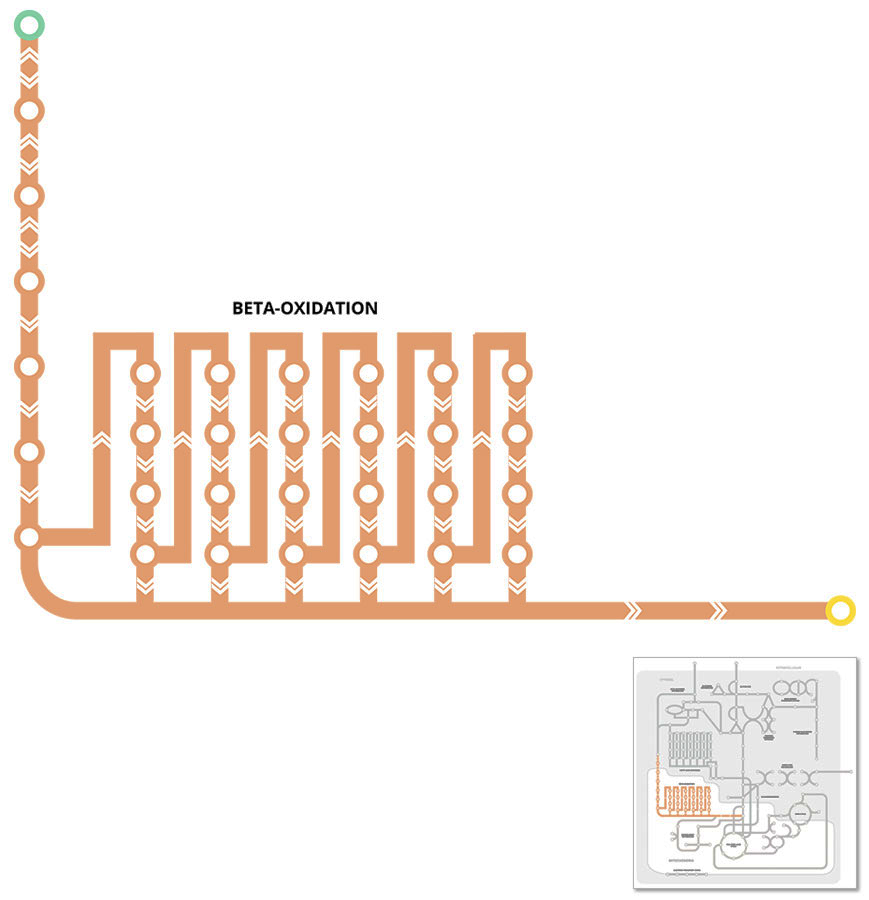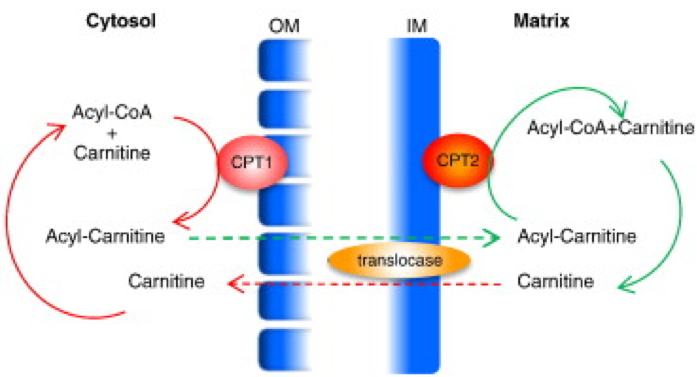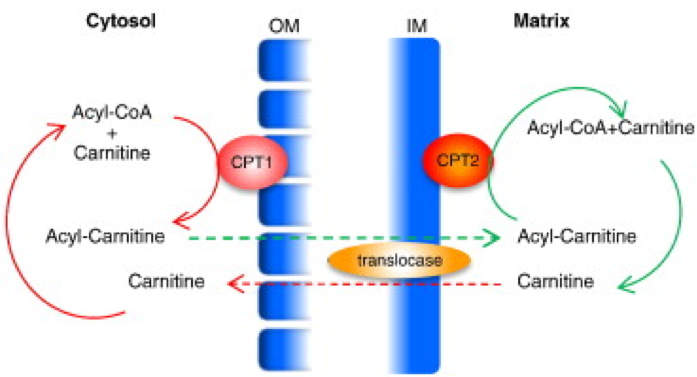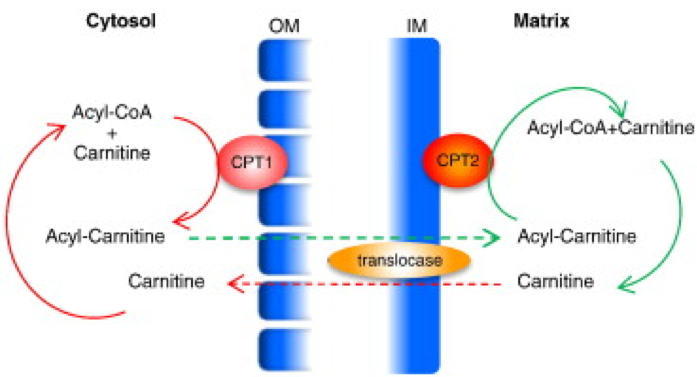
highlight all areas / label key areas

Beta-Oxidation is the primary metabolic pathway for the breakdown of fatty acids for the eventual production of energy. It involves a series of enzymatically regulated steps (or reactions) that occur in the mitochondria. The overall reaction is:
Fatty (Cn)-Acyl-CoA + FAD + NAD+ + CoA → Fatty (Cn-2)-Acyl-CoA + FADH2 + NADH + Acetyl-CoA
This process breaks down fatty acids to generate Acetyl CoA, which enters the citric acid cycle (see The Citric Acid Cycle pathway), and NADH and FADH2, which are used by pathways including oxidative phosphorylation (see Electron Transport Chain pathway) to generate energy in the form of ATP.
Key points:
An important step before fatty acid oxidation can occur in the mitochondria is the conversion or activation of fatty acids into Fatty Acyl-CoA. This process occurs in the cytosol by the enzyme Acyl-CoA Synthetase (ACS) through the following reaction that uses ATP:
Fatty acid + Coenzyme A + 2ATP ↔ Fatty Acyl-CoA + AMP + 2Pi
Key points:
Acetyl-CoA , or Acetyl Coenzyme A, is the primary substrate for the Citric Acid Cycle (see Citric Acid Cycle pathway). Acetyl CoA is generated by the breakdown of fatty acids through Beta-Oxidation, by the breakdown of carbohydrates through glycolysis (see Glycolysis pathway) and via amino acid (protein) metabolism.
This is the first and rate-limiting step in the transport of Fatty Acyl-CoA into the mitochondria (or matrix). This reaction uses an outer mitochondrial membrane enzyme called Carnitine Palmitoyltransferase 1 (CPT1) to transfer the Fatty Acyl group from CoA to a carrier protein called carnitine.
Fatty Acyl-CoA + Carnitine → Fatty acyl-Carnitine + CoA

Key points:
The next step in the transport of fatty acids into the mitochondria for oxidation, occurs via Carnitine Translocase which transports the Fatty Acyl-Carnitine complex across the mitochondrial membrane. At the same time, free Carnitine is transported across the mitochondrial membrane, but in the opposite direction.

The last step in the transport of fatty acids into the mitochondria (or matrix), uses an inner mitochondrial membrane enzyme called Carnitine Palmitoyltransferase 2 (CPT2). This is a reverse reaction where the Fatty Acyl group rebinds to CoA. Carnitine is then free to be recycled by carnitine translocase (also known as the carnitine shuttle system).
Fatty acyl-Carnitine + CoA → Fatty Acyl-CoA + Carnitine

Once the Fatty Acyl-CoA is inside the mitochondria, Beta-Oxidation commences using repeated cycles that consist of four enzymatic steps (see Figure).
With each cycle, the long chain Fatty Acyl-CoA is broken down or shortened through the cleavage or removal of two carbons (2C) from the fatty acid chain to form a new Fatty Acyl-CoA, 1 Acetyl CoA, as well as 1 FADH2 and 1 NADH. This process is repeated until all the carbon atoms in the original Fatty Acyl-CoA are in the form of Acetyl CoA.
The products of Beta-Oxidation are then used in other metabolic pathways to generate energy in the form of ATP. Acetyl CoA, enters the citric acid cycle (see The Citric Acid Cycle pathway), whilst NADH and FADH2, undergo oxidative phosphorylation (see Electron Transport Chain pathway).

Key points: